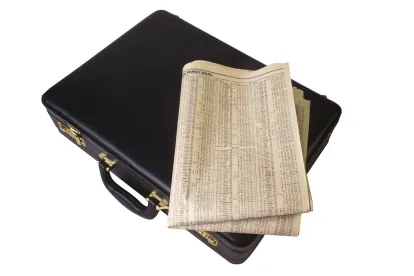The staff of the Securities and Exchange Commission’s Division of Trading and Markets (Staff) recently issued frequently asked questions (FAQs) providing guidance about the broker-dealer registration exemption in Title II of the Jumpstart Our Business Startups Act (JOBS Act).1
Title II of the JOBS Act directs the Securities and Exchange Commission (SEC) to revise Rule 506 of the Securities Act of 1933 (Securities Act) to eliminate the ban on general solicitation and general advertising for Rule 506 offers and sales where all the purchasers are accredited investors and the issuer takes reasonable steps to verify that the purchasers are accredited investors, using such methods as the SEC determines.2 Title II also added Section 4(b) to the Securities Act, which sets forth the conditions for a person to be exempt from the broker-dealer registration requirements of Section 15(a)(1) of the Securities Exchange Act of 1934 (Exchange Act) when engaged in specific matchmaking activities associated with securities offered and sold in compliance with Securities Act Rule 506 (for example, operating a "platform or mechanism" to offer or sell securities pursuant to Securities Act Rule 506).3
Persons seeking to comply with the Section 4(b) broker-dealer registration exemption, including venture capital funds and associated persons of an issuer of Rule 506 securities, should review the FAQs to ensure their practices conform to the Staff’s guidance in the FAQs and monitor the FAQs as they may be updated periodically.
This client alert summarizes the guidance provided in the FAQs.
General FAQs
- The exemption is currently effective and may be relied upon to establish platforms before the SEC adopts rules to eliminate the ban on general solicitation in Securities Act Rule 506. However, the ban on general solicitation is still in effect. Thus, persons relying on the Section 4(b) exemption cannot permit an issuer to conduct general solicitation or general advertising of a Rule 506 offering on their platform until the SEC adopts rules permitting general solicitation for Rule 506 offerings and such rules are effective.
- The exemption is only available when securities are offered and sold under Securities Act Rule 506. Thus, a platform that offers and sells securities under a private placement exemption other than Rule 506 cannot rely on the exemption from broker-dealer registration offered by Section 4(b).
- Subject to compliance with the exemption’s conditions (including the prohibition on receiving compensation in connection with the purchase or sale of securities), an entity, such as a venture capital fund or its adviser, may rely on the exemption and:
- operate an Internet website where it lists offerings of securities by potential portfolio companies in compliance with Securities Act Rule 506;
- co-invest in those securities with other investors; and
- provide standardized documents for use by issuers and investors.
The Staff noted its belief that, as a practical matter, the compensation prohibition “makes it unlikely that a person outside the venture capital area would be able to rely on the exemption from broker-dealer registration.” However, time and market practice will determine who qualifies for the exemption.
- The exemption is a registration exemption for the activities enumerated in Section 4(b), not an exclusion from the definition of the term “broker” or “dealer.”4 Thus, a person that qualifies for the exemption may still be required to register as a broker-dealer as a result of its other activities. Moreover, the exemption only means that the person would not have to comply with the requirements applicable to registered broker-dealers, but some provisions of the federal securities laws apply to broker-dealers regardless of registration status.
- The exemption does not provide an exemption from applicable state registration requirements. Thus, a Rule 506 platform will need to consider whether its activities trigger state broker-dealer registration requirements.
Platform or Mechanism FAQs
- Internet websites and social media can qualify as a “platform or mechanism” under the exemption.
- So long as the exemption’s conditions are satisfied (including the prohibition on receiving compensation in connection with the purchase or sale of securities), the Staff indicated that Section 4(b) does not limit the types of persons who may rely on the exemption to maintain a platform or mechanism. For example, if the exemption’s conditions are satisfied, an associated person of an issuer of Securities Act Rule 506 securities could maintain a platform or mechanism for the issuer’s securities.
Compensation Prohibition FAQs
- The exemption is not available to anyone who receives (or whose associated persons receive) “compensation in connection with the purchase or sale of such security.” The Staff interprets the term “compensation” broadly to include any direct or indirect economic benefit, and it is not limited to transaction-based compensation. As co-investment in the securities offered on the platform or mechanism is expressly permitted, the profits associated with such investments would not be considered by the Staff to be impermissible compensation for purposes of the exemption.
- The exemption is not available to any person paid a salary to promote, offer, and sell shares of a complex of privately offered funds (for example, a person in the internal marketing department or the investor relations department of an affiliated adviser or other entity). Any salary to such a person is compensation in connection with the purchase or sale of securities. The Staff noted that the SEC previously indicated that persons who market private fund interests may be subject to the broker-dealer registration requirements of Exchange Act Section 15(a)(1).
1. See SEC Div. of Trading & Mkts., Jumpstart Our Business Startups Act Frequently Asked Questions About the Exemption from Broker-Dealer Registration in Title II of the JOBS Act (Feb. 5, 2013), available at http://www.sec.gov/divisions/marketreg/exemption-broker-dealer-registration-jobs-act-faq.htm.
2. Although Title II of the JOBS Act required the SEC to adopt by July 4, 2012 final rule amendments to eliminate the ban on general solicitation for Rule 506 offers and sales, the SEC has only issued proposed rule amendments. Please see our client alert dated September 21, 2012 regarding the SEC’s proposed amendments to eliminate the ban on general solicitation, "SEC Proposes Amendments to Allow General Solicitation in Certain Private Offerings Pursuant to JOBS Act."
3. Securities Act Section 4(b) provides:
(1) With respect to securities offered and sold in compliance with Rule 506 of Regulation D under this Act, no person who meets the conditions set forth in paragraph (2) shall be subject to registration as a broker or dealer pursuant to section 15(a)(1) of this title, solely because—
(A) that person maintains a platform or mechanism that permits the offer, sale, purchase, or negotiation of or with respect to securities, or permits general solicitations, general advertisements, or similar or related activities by issuers of such securities, whether online, in person, or through any other means;
(B) that person or any person associated with that person co-invests in such securities; or
(C) that person or any person associated with that person provides ancillary services with respect to such securities.
(2) The exemption provided in paragraph (1) shall apply to any person described in such paragraph if—
(A) such person and each person associated with that person receives no compensation in connection with the purchase or sale of such security;
(B) such person and each person associated with that person does not have possession of customer funds or securities in connection with the purchase or sale of such security; and
(C) such person is not subject to a statutory disqualification as defined in section 3(a)(39) of this title and does not have any person associated with that person subject to such a statutory disqualification.
(3) For the purposes of this subsection, the term ‘‘ancillary services’’ means—
(A) the provision of due diligence services, in connection with the offer, sale, purchase, or negotiation of such security, so long as such services do not include, for separate compensation, investment advice or recommendations to issuers or investors; and
(B) the provision of standardized documents to the issuers and investors, so long as such person or entity does not negotiate the terms of the issuance for and on behalf of third parties and issuers are not required to use the standardized documents as a condition of using the service.
Although Section 4(b)(1) explicitly refers to Section 15(a)(1) of the Securities Act, the Staff made clear in the FAQs that Congress exempted the persons described in Section 4(b) from the broker-dealer registration requirements under Exchange Act Section 15(a)(1) and, thus, the Staff considers the exemption to be fully operational.
4. The Staff noted that the Guide to Broker-Dealer Registration, which is availablehere, provides Staff guidance on the types of activities that may bring a person within the meaning of the term broker or dealer.






 />i
/>i
